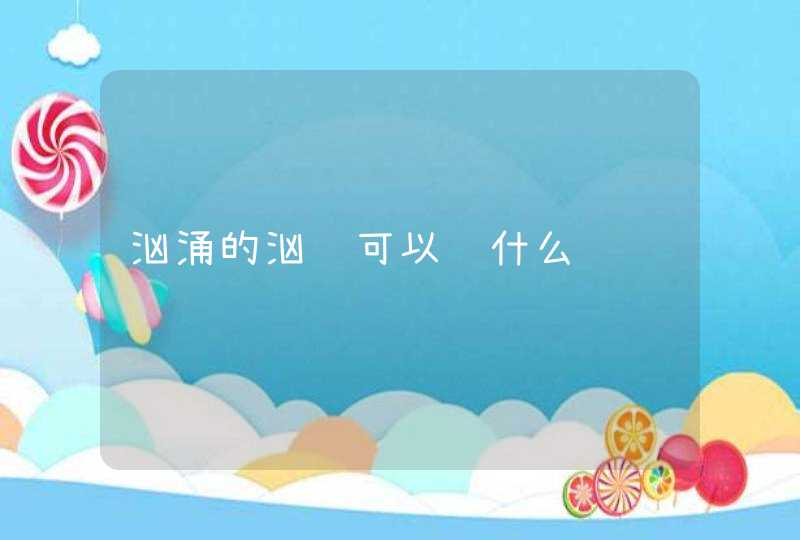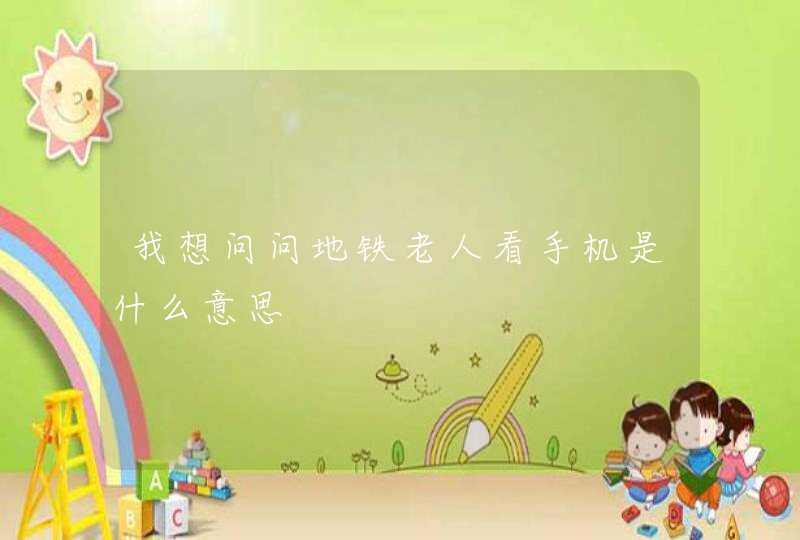the [辅音前读作 ðə; 元音前和j-; hi-; he-; hə-前常读作ði; 罕强'ði; ,ði; 强ði:; 在元音前有时用作弱式; 元音前弱 ði; 辅音前弱 ðə; ð]
definite article
[指已提过的人或物]:
I bought a car yesterday The car is very expensive
我昨天买了一辆小汽车,这辆车很贵。
The book you gave me is now on the bookshelf
你给我的那本书现在在书架上。
[谈话双方都知道共同所指的事物]:
I have returned the book
我已将书还了。
Shut the door, please
请把门关上。
How do you like the novel
你觉得那本小说怎样
Have you passed the exam
你考试通过了吗
[指就近的事,表示“当前的”]
the Beijing of today
今天的北京
the best song of the week
本周最佳歌曲
the hit of the week
本周最轰动的消息(或最卖座的影片)
[表示世界上独一无二的东西]:
The sun is down
太阳落山了。
the moon
月亮
the earth
地球
the universe
宇宙
the atmosphere
大气层
[用在表示自然现象的名词前]:
the night
夜晚
the day
白天
The wind died away
风逐渐停了。
The clouds darkened the sky
乌云遮暗天空。
The rain began to fall
开始下雨了。
[表示提到过的人的身体的一部分或衣着]:
I took her by the hand
我牵住她的手。
He was wounded in the leg
他腿部受了伤。
She looked me in the face
她瞧着我的脸。
My friend patted me on the shoulder
我朋友拍拍我的肩膀。
[口语][用于表示全家人中的一些人]:
the husband
丈夫
the wife
妻子
the kid sister
小妹妹
[用于姓的复数前,表示一家人]:
The Browns went to the cinema yesterday
布朗一家人昨天去看**了。
The Yangs were out for a holiday
杨家外出度假了。
the Simpsons
辛普森一家
[与可数名词单数连用表示一类人或物]:
You should learn to use the computer
你应该学会使用电脑。
The cow is a domestic animal
奶牛是家畜。
The horse is useful to man
马对人类有用。
The whale is a mammal
鲸鱼是哺乳动物。
[用于形容词前构成名词,表示一类人]:
the rich and the poor
富人与穷人
the wounded
受伤者
the good
好人
the beautiful
美人
the true
真诚的人
[用在表示民族、阶级、阶层、集团、党派前,表示一个整体]:
the Chinese (people)
中国人(民)
the working class
工人阶级
the aristocracy
贵族
the intelligentsia
知识分子
[用于被后置限制性定语修饰的名词前]:
the man who answered
回答的人
the pen you lost
你丢的钢笔
the photo in her hand
她手中的照片
Do you know the man who spoke just now
你认识刚才发言的人吗
The magazine she gave me is Reader's Digest
她给我的杂志是《读者文摘》。
[用于江、河、海洋等的名称前]:
the Red Sea
红海
the Pacific
太平洋
the Yangtze
长江
the Thames
泰晤士河
the Mississippi (River)
密西西比河
the Panama (Canal)
巴拿马运河
[用于海峡、海湾等的名称前]:
the Persian Gulf
波斯湾
the English Channel
英吉利海峡
the Straits
马六甲海峡
the Taiwan Straits
台湾海峡
[用于山脉、群岛、半岛、沙漠等的名称前]:
the Crimea
克里米亚半岛
the Himalayas
喜马拉雅山
the Balkan Peninsula
巴尔干半岛
the Sahara
撒哈拉沙漠
[用于普通名词等构成的国名或复数形式的国家、地区名称前]:
the People's Republic of China
中华人民共和国
the United Kingdom of Great Britain and Northern Ireland
大不列颠及北爱尔兰联合王国
the United States of America
美利坚合众国
the Argentine
阿根廷
[用于普通名词等构成的政党、组织机构等名称前]:
the United Nations
联合国
the National People's Congress
全国人民代表大会
the State Department
(美国)国务院
[用于普通名词等构成的学校、商店、旅馆、剧院等建筑物的名称前]:
the Capital Theatre
首都剧院
the Great Hall of the People
人民大会堂
the Worker's Gymnasium
工人体育馆
the British Museum
大英博物馆
[用于报纸、杂志、会议、条约等名称前]:
the People's Daily 《
人民日报》
the Times 《
泰晤士报》
the New York Times 《
纽约时报》
the Washinton Post 《
华盛顿邮报》
the Atlantic Pact 《
大西洋公约》
the Geneva Agreement 《
日内瓦协议》
the Advanced Learner's Dictionary of Current English
[用于某些节日名称前]:
the Spring Festival
春节
the Mid-Autumn Festival
中秋节
[用于形容词或定语修饰的人名或地名前]:
The theory was advanced by the great Lenin
这一理论是伟大的列宁提出的。
The little Tom is now only 9 months of age
小汤姆现在才9个月大。
the China of 1949
1949年的中国
the Paris of the East
东方的巴黎
[用于强调特指,或表示最重要、最著名或最流行的事物]:
That's the restaurant in town
那是城里最有名的饭店。
the skiing center of the US
美国滑雪中心
Caesar was the general of Rome
恺撒是罗马的盖世将军。
[用于不定式短语前]:
the right to strike
罢工的权力
[用于形容词最高级前]:
Autumn is the best season in Beijing
秋天是北京最好的季节。
He is the eldest among the 3 brothers
他是三兄弟中最年长的。
[用于形容词比较级前,表示两者间“较…的一个”]:
She is the cleverer of the two
她是两人中较聪明的一个。
He is the stronger of the 2 brothers
他是两兄弟中比较强壮的一个。
[用于可数名词单数前,表示功能、属性等,使具抽象性]:
The picture is pleasant to the eye
这幅画很悦目。
He took to the bottle
他嗜酒如命。
She took the veil at 18
她18岁时当了修女。
He is in the theatre
他是个演员。
He went from the bar to the bench
他由律师转为法官。
[用于疾病名称前]:
the smallpox
天花
the flu
流感
[用于数量前,表示一个单位,含“每,每一”的意思]:
sell at five dollars the half ton
每半吨售价五美元
I pay them by the hour
我按小时付给他们钱。
[用于表示某一特定时期,尤指十年]:
the Dark ages
黑暗时期
the Sixties
60年代 。
The 1990s were hisgolden age
20世纪90年代是他的黄金时期。
[用于 radio,telephone 或乐器名称前]:
The old man listens to the radio every morning
老人每天早上听收音机。
I talked with her over the telephone
我和她在电话上交谈。
She played the piano,and I played the violin
她弹钢琴,我拉小提琴。
[用于序数词前]:
adv
[用于形容词、副词比较级前]更;到相应程度:
I like a man none the worse for being outspoken
我并不因为一个人直言不讳而改变我对他的好感。
I like him all the better for his criticism
他提出了批评,我反而更喜欢他了。
[用于形容词、副词比较级前,the…,the…]越…越…:
The sooner,the better
越快越好。
The more the merrier
人越多越热闹。
[用于副词最高级前,但常可省略]:
He came (the) earliest of all
他来得最早。
双语例句
He described the scene to me
他向我描述了那个情景。
Are you for or against the plan
你支持还是反对这项计划
The world exists, whether you like it or not
不管你喜欢与否,这个世界照样存在。
怎么样的英文
How about
What about
······怎么样的英文
what about
what about you 你怎么样
what about going to school 去学校怎么样?
what about the丹bird 这只鸟怎么样?
一怎样就怎样的英文
as soon as conj一 就
方便的英文怎么说
方便
convenience
conveniency
expedience
方便1 (便利) convenient; handy:
make things convenient for the people;
方便群众
have a good transport service;
交通方便
2 (上厕所) go to the lavatory:
I want to wash my hands
我要方便一下。
Let us have a few minutes' break, and Your Excellency ma供 do what you want to
我们休息几分钟, 阁下可以方便方便。
3 (有富余的钱) have money to spare or lend:
have little money to spare
手头不方便
在方面英文怎么说
在…方面
建议以用“inrespect” 即可;
{“in the aspect of”虽也有同样意思,但通常有点偏向于“从角度”而言 }
{“in terms of”= 在…方面,就…来说}
在文学方面
in literature respect
但在另一种句中的表述情况时就无须这么说了,可直接用“in”例如:
文学方面的成就 ------in literary acplishments
他在文学方面取得的成就------he has achieved in literature
请注意按适当语境情况来选用。
是的,我会的。 用英文怎么说
是的,我会的
Yes, I will
Yeah, I will
英文是如何来的
英语,作为当今世界事实上的国际社交语言,它取得的成功是史无前例的。从使用它的人口来说,以英语为母语的人数仅次于汉语而居世界第二位,大约有四亿多人。然而以英语作为第二语言、或者在一定程度上使用英语的人数,要远比这多得多,可以说分布在世界的各个角落、各个民族,在这一点上汉语是望尘莫及的。它是怎样发展起来的?
英伦三岛的第一批印欧居民是塞尔特人。原先岛上可能还有更早的居民,但是人烟稀少,所以没有留下多少遗迹。前文提到,塞尔特人是古印欧人的一支,大约在四千五百年前离开他们在东欧的故乡向西迁移,在公元前一千年时(相当于我国商朝末年、西周初年),他们成了德国南部、阿尔卑斯山北麓的一个强大民族。在公元前五百年左右(相当于我国春秋时期),他们开始向西迁移,后来到了英伦诸岛。这就是印欧人的第一次“入侵”。
印欧人的第二次入侵是在公元五世纪中叶,当时生活在现在的德国和丹麦交界处有两个部落,一个是石勒苏益格(Schleswig)的盎格鲁(Angles),另一个是霍尔施坦因(Holstein)的萨克森(Saxon)。石勒苏益格/霍尔施坦因现在是德国最北面的两个州,是第一次世界大战时德国从丹麦那里“取得”的。这两个部落从那里跨过北海,占据了英格兰,原来的塞尔特人很快地后罚到威尔士、爱尔兰和苏格兰高地。English一词就出自Angles,原意为“角落”,意即他们来自欧洲大陆的一角。在古英语中Angle写作Engle,他们的语言叫做Englisc(在古英语中“sc”读如“sh”,如“sceap”——
“sheep”)。顺便说一句,“塞尔特”(Celt)中的c可以读如s或k,所以也叫“凯尔特”,美国人中有许多来自苏格兰和爱尔兰,所谓的“美国腔”可能是凯尔特口音。波士顿不是有个著名的球队叫“凯尔特人队”嘛。
古英语一直发展到公元1066年法国的诺曼人入侵。在此以前,由于受北欧人和罗马人的影响,许多斯堪地那维亚词汇和拉丁词汇溶了进来。前者如egg,cake,skin,leg,window,hu and,sky,fellow,skill,anger,flat,ugly,odd,get,give,take,raise,call,die,they,their,them;后者如street,kitchen,kettle,cup,cheese,wine。塞尔特语的遗迹大多留在地名中,如Thames,Kent,Dover。
诺曼人的入侵为英语带来了大量的法语词汇,这使得现代英语中存现大量的同义/近义词:shut/close,answer/reply, ell/odor,yearly/annual,ask/demand,room/chamber,wish/desire,might/power(英语词/法语词)。有一个有趣的现象是产肉的动物多是英语词,如ox,cow,calf,sheep,swine,deer,而它们的肉则是法语词,如beef,veal,mutton,pork,bacon,venison。大概持法语的多为贵族统治者,只注意他们餐桌上的肉,并不在意牲畜们叫什么。
另外在已有的英语/斯堪地那维亚语同义词基础上,如英语的wrath和斯堪地那维亚语的anger之外,法语又加了个ire。连我们汉语也贡献了几个词:kowtow(叩头),typhoon(台风),sampan(舢板),kaolin(高岭土),tea(闽方言),shanghai(不是地名:-))。
这些外来语使英语成为一个表达力丰富的语言。尽管溶入了如此众多的“外来语”,古英语仍>>
工具的英文怎么写
汉语工具
英语1tool
例句An intelligent puter will be an ind绩spensable diagnostic tool for doctors
智能计算机将成为医生不可或缺的诊断工具。
英语2instrument
例句The despot claimed to be the chosen instrument of divine providence
专制者声称自己是上天选定的统治工具
加入的英文怎么读?
join
英 [dʒɔɪn]
美 [dʒɔɪn]
vt& vi连接; 联结; 加入; 参加
vt结合; 参与; 上(火车、飞机等); 上(路)
n连接; 结合; 接合处; 接合点
你可以的 英文怎么写
You can do it
You can
基数词
one1 ——two2 ——three3 —— four4 —— five5 ——six6—— seven7 —— eight8——nine9——ten10——eleven11——twelve12——thirteen13——fourteen14——fifteen15——sixteen16——seventeen17——eighteen18——nineteen19——twenty20——thirty30——forty40——fifty50——sixty60——seventy70——eighty80——ninety90——hundred百——thousand千——million百万
序数词
first第一second第二——hird第三——fourth第四——fifth第五——sixth第六——tseventh第七——eighth第八——ninth第九——tenth第十——eleventh第十一——twelfth第十二
2、服饰 Clothes
coat外套——jacket夹克——sweater毛衣——shirt衬衣——swimsuit泳衣——raincoat雨衣——dress连衣裙——skirt短裙——T-shirtT恤衫——trousers裤子——pants长裤——shorts短裤——jeans牛仔裤——vest背心——pocket口袋——shoe鞋——sneakers网球鞋——sandals凉鞋——slippers拖鞋——boots靴子——sock袜子——cap鸭舌帽——hat有沿帽——gloves手套——tie领带——sunglasses太阳镜
3、食物 food
breakfast早餐——lunch午餐——dinner晚餐——bread面包——noodles面条——rice米饭——meat肉——pork猪肉——chicken鸡肉——beef牛肉——mutton羊肉——fish鱼肉——egg鸡蛋——tofu豆腐——vegetable蔬菜——fast food快餐——hamburger汉堡——hot dog热狗——cake蛋糕——biscuit饼干——cookie曲奇饼——chips薯条——cheese奶酪——salad沙拉——sausages香肠——chocolate巧克力——moon cake月饼——sweets糖果——peanut花生——ice-cream冰激凌——water水——tea茶——milk牛奶——juice果汁——coffee咖啡——cola可乐——eggplant茄子——cucumber黄瓜——green beans青豆——tomato西红柿——potato土豆——onion洋葱——carrot胡萝卜——cabbage卷心菜——soup汤——apple苹果——pear梨子——mango芒果——banana香蕉——orange橙子——watermelon西瓜——grape葡萄——peach桃子——strawberry草莓
4、生活类
家居类
room房间——bedroom卧室——living room客厅——washroom盥洗室——bathroom浴室——dining room餐厅——kitchen厨房——house房屋——table桌子——floor地板——wall墙壁——shelf架——door门——window窗户——curtain窗帘——bed床end table床头柜——closet壁橱——sofa沙发——trash bin垃圾箱——mirror镜子——doorbell门铃——key钥匙——lock锁——cooker炊具——pot锅——plate盘子——cup茶杯——spoon勺子——fork叉子——vase花瓶——knife小刀——chopsticks筷子box盒子——medicine药——tooth brush牙刷——photo相片——picture——hammer锤子——ticket票——stamp邮票
电子类
electricity电——television电视——TV电视——fridge冰箱——air-conditioner空调——fan风扇——light灯——lamp台灯——oil lamp油灯——radio收音机——phone电话——telephone电话——camera相机——walkman随身听——video录像带computer电脑——keyboard键盘——mouse鼠标——screen屏幕——monitor显示器——laser printer激光打印机——CD激光唱盘——CD-Rom只读光盘——E-card电子贺卡——E-mail电子邮件
5、交通工具
bike自行车——bicycle自行车——motorcycle摩托车——car小汽车——bus公共汽车——taxi出租车——jeep吉普车——lorry卡车——van邮车——subway地铁——train火车——plane飞机——boat小船——ship轮船——spaceship宇宙飞船
6、学校 school
grade年级——class班级——middle school中学——row排、行——team队——group组——Teacher’s office教师办公室——Classroom教室——Teacher’s desk讲台——desk书桌——chair椅子——bag书包——pen钢笔——pencil铅笔——crayon蜡笔——pencil-box铅笔盒——eraser橡皮——ruler尺子——sharpener卷笔刀——map地图——icon图标——board写字板——blackboard黑板——dictionary字典——book书——story-book故事书——comic book漫画书——paper纸——newspaper报纸——magazine杂志——card卡片,贺卡——library card图书卡——picture图画、照片——address地址——information信息——message信息——homework作业——letter字母——word单词——Chinese语文——Math数学——English英语——physics物理——chemistry化学——geography地理——Science科学课——Music音乐课——PE体育课
7、运动类 sport
ball球——basketball篮球——football足球——baseball棒球——table-tennis乒乓球——swimming游泳——high jump跳高——long jump跳远——skipping-rope跳绳——cycling骑自行车——race比赛——morning exercises早操——Olympic Games奥林匹克
8、娱乐类
game游戏——jigsaw拼图游戏——chess国际象棋——slide滑梯——swing秋千——kite风筝——Barbie doll芭比娃娃——teddy bear玩具熊——balloon气球
9、音乐类
music音乐——pop music流行音乐——Classical music古典音乐——song歌曲——dancing舞蹈——violin小提琴——trumpet小号——guitar吉他——zither古筝——erhu二胡——flute笛——drum鼓——trumpet喇叭
10、 家庭 Family
dad爸爸——father父亲——parent父母——mum妈妈——mother母亲——grandparent祖父母——uncle 叔叔、舅舅——grandpa祖父——grandma祖母——brother兄弟——sister姐妹——cousin堂兄弟——son儿子——daughter女儿
11、称呼
friend朋友——children孩子们——child孩子-单数——boy男孩——girl女孩——kid小孩——twin双胞胎——baby婴儿——lady女士——kin亲戚——men男人(复数)——women女人(复数)——pen friend笔友——classmate同学 ——people人——neighbour邻居——tourist旅行者——queen女王——robot机器人—— visitor客人——dear亲爱的
12、职业
reporter记者——doctor医生——nurse护士——driver司机——farmer农民——worker工人——acrobat杂技演员——clown小丑——cleaner清洁工——fireman消防员——postman邮递员——goalkeeper守门员——singer歌唱家——writer作家——painter画家——actor男演员——actress女演员——engineer工程师——policeman警察——accountant会计model模范——principal校长—— pupil小学生——teacher老师——shop assistant售货员——university student大学生——baseball player棒球运动员——salesperson销售员
13、人体 Body
eye眼睛——nose鼻子——ear耳朵——mouth嘴巴——tooth/teeth牙齿——tongue舌头——face脸——head头——hair头发——neck脖子——shoulder肩膀——stomach胃——hand手——finger手指——arm手臂——foot/feet脚——toe脚趾——leg腿——knee膝盖
14、 疾病
headache头痛——stomachache胃痛——cold感冒——fever发烧——toothache牙疼——sore throat喉咙疼
15、地点
home家——school学校——playground游乐场——garden花园——park公园——nature park自然公园——pond池塘——zoo动物园——theme park主题公园——circus马戏团——cinema**院——science museum科学博物馆——department store百货商店——theatre戏院——library图书馆——supermarket超市——restaurant饭馆——gym体育馆——pet shop宠物店——flat公寓——playground操场——post office邮局——community社区——art room美术教室——bookstore书店——hospital医院——music room 音乐教室——fruit stand水果摊——bank银行——computer room计算机教室——canteen食堂——TV room电视机房——prairie草原——company公司——factory工厂——space太空——building大楼——station车站——Chinatown唐人街——square广场——farm农场——airport飞机场
16、国家Country
China/PRC中国——Chinese中国的——Australia澳大利亚——England英国——English英国的——Scotland苏格兰——America/USA美国——American美国的——Canada/CAN加拿大——India印度——Indian印度的UN联合国
17、城市 City
Beijing北京——Shanghai上海——Hong Kong香港——Tibet西藏——Harbin哈尔滨——Shanxi山西——Shaanxi陕西——Xiamen厦门——Fujian福建——London伦敦——New York纽约——Moscow莫斯科——Sydney悉尼——Cario开罗——WashingtonDC华盛顿——San Francisco旧金山
18、 景点
the Changjiang River长江——the Yellow River黄河——the Great Wall长城——the Summer Palace颐和园——Ming Tombs明陵——TowerBridge塔桥——MountTai泰山——West lake西湖——Hyde Park海德公园——Buckingham Place白金汉宫River Thames泰晤士河——the London Eye伦敦眼——Big Ben大本钟
19、天气 Weather
season季节——sunny阳光充足的——hot热的——spring春季——rainy下雨的——warm温暖——summer夏季——windy刮风的——cold寒冷的——autumn(fall)秋季——snowy下雪的——cool凉爽的——winter冬季——wet湿的——dry干的
20、大自然类
sky天空——sun太阳——cloud云——mountain大山——hill小山——island岛——sea海——river河流——lake湖——tree树——flower花——bamboo竹子——fire火——stone石头——world世界
21、颜色Color
red红色——yellow**——blue蓝色——black黑色——white白色——brown褐色/棕色——green绿色——pink粉色——orange橙色——purple紫色
22、动物 animal
cat猫——dog狗——pig猪——chicken鸡——rooster 公鸡——hen母鸡——chick小鸡——turkey火鸡——duck鸭子——mouse老鼠——rabbit兔子——goose鹅——tiger老虎——lion狮子——bear熊——wolf狼——fox狐狸——kangaroo袋鼠——sheep绵羊——goat山羊——lamb小羊羔——cow牛——cow奶牛——elephant大象——horse马——zebra斑马——donkey驴——deer鹿——giraffe长颈鹿——panda大熊猫——monkey猴子——squirrel松鼠——dragon龙——ant蚂蚁——bee蜜蜂——snake蛇——bird鸟——parrot鹦鹉——owl猫头鹰——fish鱼——shark鲨鱼——squid鱿鱼——seal海豹——killer whale虎鲸——sperm whale抹香鲸l——obster龙虾——frog青蛙——pet宠物
23、时间 Time
morning早上——today今天——year年——afternoon下午——yesterday昨天——hour小时——evening晚上——tomorrow明天——minute分钟——night夜晚——tonight今晚——o’clock时钟——someday有一天——sometimes有时——holiday假日——break课间休息——week星期——weekend周末——Sunday星期日——Monday星期一——Tuesday星期二——Wednesday星期三——Thursday星期四——Friday星期五——Saturday星期六——month月份——January一月——February二月——March三月——April四月——May五月——June六月——July七月——August八月——September九月——October十月——November十一月——December十二月
24、节日Festival
New Year新年——Christmas圣诞节——Thanksgiving感恩节——Spring Festival春节——Lantern festival元宵节——Dragon Boat Festival端午节——Mid-Autumn festival中秋节——Children’s Day儿童节——Flag Day国旗日
25、方位词
on在…上面——below在…下面——in在…里面——over在…上方——under在…下方——between在…之间——at在…方面——inside在…内——around在…周围——in front of在…前面——behind在…后面——next to相邻——from从…来——near附近——by靠近——left左边——right右边——up向上——east东——west西——down向下——south南——north北——with用,和——for为
26、指示代词
this这个——that那个——here这里——these这些——those那些——there那里——all over到处
27、 疑问词
what什么——why为什么——where哪里——who谁——whose谁的——which哪个——when何时——how怎么——how big 有多大——how old 几岁——how much多少钱——how long有多长——how many多少——how tall 多高——how heavy多重——what time几点——what day星期几
1、蓝色Blue
读音:英 [bluː],美 [bluː]
释义:
(1)adj 蓝色的;忧郁的;沮丧的;色情的
(2)n 蓝色
2、红色red
读音:英 [red],美 [red]
释义:
(1)adj 红色的
(2)n 红色
3、黑色black
读音:英 [blæk],美 [blæk]
释义:
(1)adj 黑的;不加牛奶的;很脏的;愤怒的;令人沮丧的;邪恶的;机密的
(2)n 黑色;黑人;黑色物
(3)v 抵制;(使)变黑
4、**yellow
读音:英 ['jeləʊ],美 ['jeloʊ]
释义:
(1)adj **的
(2)n **;蛋黄;黄种人
(3)v (使)变黄
5、绿色green
读音:英 [ɡriːn],美 [ɡriːn]
释义:
(1)adj 绿色的;长满绿色植物的;环保的;无经验的;未成熟的
(2)n 绿色;草地
(3)vi 变绿
(4)vt 使…变绿;使…恢复活力
River Thames
[释义] 泰晤士河;
[例句]Modern rowing originated from the River Thames in Britain
现在的赛艇起源于英国的泰晤士河。
以上就是关于The这个单词念什么全部的内容,包括:The这个单词念什么、怎么的英文、幼儿园英语单词等相关内容解答,如果想了解更多相关内容,可以关注我们,你们的支持是我们更新的动力!


